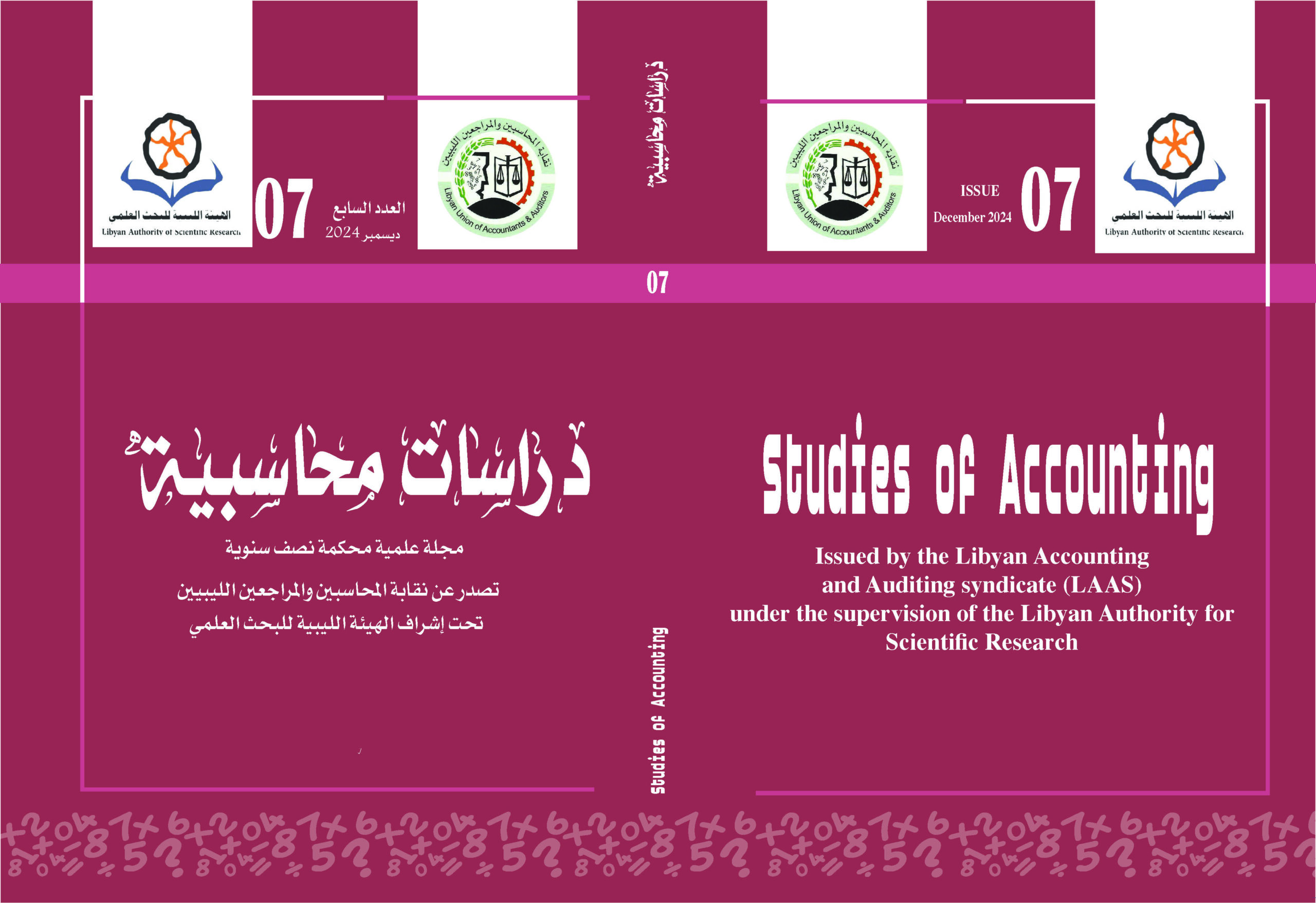The impact of foreign ownership on the financial stability of the Libyan banking system
DOI:
https://doi.org/10.5281/zenodo.15531684Keywords:
Foreign ownership; Financial stability; Libyan banking system.Abstract
This study aims to test the impact of foreign ownership on the financial stability of the Libyan banking system during the period from 2012 to 2020. The collected data were analyzed using the Ordinary Least Squares method (OLS). The study used the Z-SCORE index as a dependent variable to measure financial stability, while the share of foreign ownership was the main independent variable. In addition, the study used bank-specific factors, market structure, and macroeconomic factors as control variables. Our results confirm that foreign ownership has a positive and statistically significant impact on the financial stability of the Libyan banking system, while increasing state ownership has a negative and statistically significant impact by encouraging banks to take more risks. In general, our empirical evidence shows that cost efficiency has a negative and insignificant relationship and that inefficient banks are less stable. While bank size has a positive and statistically significant effect, indicating that larger banks are more stable. The negative and statistically significant value of market concentration indicates that low competition in the Libyan banking system leads to low financial stability. Regarding macroeconomic factors, our results confirm that the GDP growth is positive and statistically significant, meaning that higher economic growth leads to greater banking stability. While money supply has a negative and statistically significant effect as a contractionary monetary policy through banks’ ability to lend affects financial stability. This study recommends that the regulatory authorities in Libya should take the necessary actions to attract and encourage foreign investment in the banking sector such as flexibility in legal regulations to attract foreign banks and facilitate their operations in Libya.

Downloads
Published
Issue
Section
License

Authors retain copyright and grant the journal right of first publication with the work simultaneously licensed under a Creative Commons Attribution (CC-BY) 4.0 License that allows others to share the work with an acknowledgment of the work’s authorship and initial publication in this journal.









